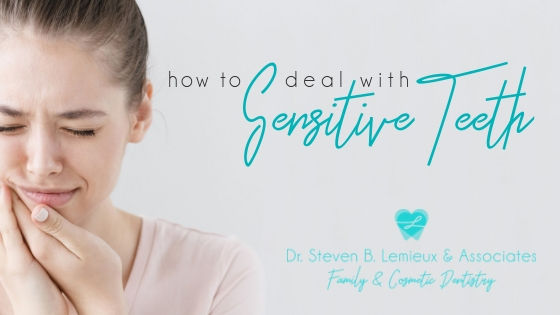Brr, it’s cold out there! While the winter can bring beautifully snow-covered tree branches and a chilly Chiefs win, you might also experience that your teeth are sensitive to the cold temperatures that the Midwest winter often gifts us this time of year.
According to the Academy of General Dentistry, more than 40 million adults suffer from discomfort or pain due to sensitive teeth, whether that’s cold air or hot drinks. Here are 5 tips for preventing sensitivity so that cold feet and an icy windshield are the worst of your winter woes this season.
Find a toothpaste for sensitive teeth
If you are experiencing uncomfortable symptoms due to sensitive teeth, the shelves are filled with desensitizing toothpastes to help with brushing. Ask us what has worked best for our patients’ teeth!
Use a soft-bristled toothbrush
Picking out the right toothbrush has everything to do with preventing irritation and abrasion. Use a soft-bristled toothbrush and brush lightly at a 45-degree angle. A side-to-side brush stroke right at the gum line can take off more than just plaque, exposing nerve endings to potential sensitivities.
Avoid highly acidic foods
Soda, sticky candy, and high-sugar carbs can dissolve tooth enamel, leaving your teeth vulnerable. If you do drink something acidic, use a straw to protect your teeth and don’t rush to brush. Drink water to balance the acid levels in your mouth and wait an hour before scrubbing your pearly whites.
Look into other dental issues
Sensitive teeth can be related to other dental problems such as naturally shrinking gums, grinding teeth, gum disease, or a cracked tooth or filling. If you think that there is a bigger problem behind the tooth twinges, contact us for advice.
Maintain good oral hygiene
Taking good care of your teeth can prevent any underlying causes of sensitive teeth such as a receding gum line due to gum disease. Make your dental health a priority; brush and floss as recommended and keep up with your regular dental visits.
Everyone deserves to enjoy a hot cup of cocoa without a tooth twinge this cold winter season. If tooth pain or discomfort has become a regular occurrence, schedule a check up and talk with us about prevention and remedies.

